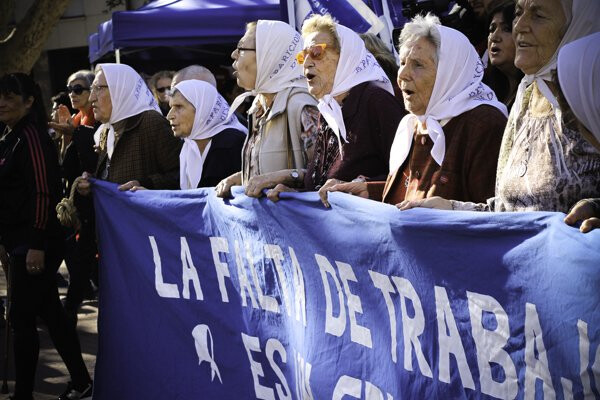
BUENOS AIRES, Argentina – The Argentine government has undertaken an unprecedented restructuring of its Human Rights Secretariat, downgrading it to an Undersecretariat level and reducing its organizational structure by 40% and personnel by 30%. These measures are expected to yield substantial annual budget savings of approximately 9 billion pesos (around 7.8 million USD). Presidential Spokesperson Manuel Adorni stated that these actions aim to ensure that human rights-related work focuses on fairly guaranteeing all human rights, rather than the interests of a specific political party.
"Guaranteeing Everyone's Human Rights" Emphasized Amidst Large-Scale Staff Reduction
Adorni explained, "The Ministry of Justice has decided to transform the Human Rights Secretariat into the Undersecretariat for Human Rights," adding, "This will result in a 40% reduction in the organizational structure and a 30% reduction in personnel, saving approximately 9 billion pesos annually." He further noted, "The human rights portfolio will now be responsible for guaranteeing all human rights, rather than advocating for a specific partisan ideology."
Adorni emphasized that despite the 30% reduction in personnel, "the function of this area will not be affected." He stated that since the government took office, "405 'militant' employees have already been dismissed, which accounts for 44% of the personnel inherited," reaffirming the current government's policy of "analyzing and adopting urgent measures to improve the structure, operation, and sustainability of the state." The term 'militant employees' is understood to refer to staff who were actively engaged in specific political activities aligning with the ideology of the previous administration.
Ministry of Justice Cuts 50% of Command Positions; Cultural and Artistic Sectors Also Restructured
According to an announcement by the Ministry of Justice, this restructuring has led to a 50% reduction in command positions and the dismissal of 405 'militant' employees (44% of inherited personnel). Additionally, the existing National Memory Archive and the ESMA Site Museum will be integrated under the 'International Center for the Promotion of Human Rights' to enhance operational efficiency.
This restructuring is not limited to the human rights sector but is also being broadly applied to the cultural and artistic fields. Centralization is being pursued for several cultural institutions, including the National Theater Institute, the Museum of Fine Arts, and the Tecnópolis technology museum. Furthermore, a new 'National Institute of Historical Research' will be established to streamline operations and reduce administrative costs. This is expected to proceed by either closing existing individual research institutions or integrating them into the new entity.
Milei Government's Austerity Policies and Human Rights Controversy
The Argentine government's reduction of the Human Rights Secretariat and the consolidation of related institutions are interpreted as part of President Javier Milei's aggressive austerity policies. President Milei campaigned on promises of government spending cuts and public sector efficiency, and since taking office, he has pursued large-scale restructuring, including the consolidation of public institutions and the reduction of subsidies.
However, some are raising concerns that these measures could weaken Argentina's human rights protection system. Particularly, the reduction of human rights-related organizations, which have played a crucial role in remembering and clarifying the history of human rights abuses during the military dictatorship, remains controversial. Argentina experienced severe human rights oppression during the military dictatorship (1976-1983), known as the 'Dirty War,' where tens of thousands of citizens disappeared or died. Remembering this painful past and clarifying the truth holds significant meaning in Argentine society. Therefore, the reduction of human rights-related institutions is highly likely to spark social debate in conjunction with this historical context.
While Adorni stated that "the human rights portfolio will now be responsible for guaranteeing all human rights, rather than advocating for a specific partisan ideology," human rights organizations are expressing concern that the government's perception could downplay responsibility for past human rights violations and neglect the protection of vulnerable groups' human rights.
The Argentine government's restructuring of human rights-related institutions signals a significant shift in the nation's human rights policy direction and historical perception, beyond mere administrative efficiency. The trajectory of discussions surrounding this issue in Argentine society will be closely watched.
[Copyright (c) Global Economic Times. All Rights Reserved.]






























